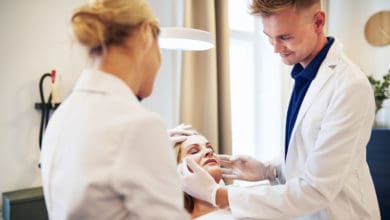As a new application cycle starts this spring, applicants around the nation are beginning to fill out the Work/Activities sections. This article provides some insight into how to best talk about volunteering experiences in both the local and global community.
In my most recent article I discussed the importance of extracurricular activities in the medical school application. However, the value of extracurricular activities extends far beyond the application – they provide opportunity to develop personal characteristics that will serve you for the rest of your medical practicing career. Traits such as leadership, communication, compassion, and understanding are not learned from lecture halls or textbooks, but are just as important as knowledge to patients and healthcare. A physician who has a wealth of knowledge about medicine is limited if he is unable to connect with his patients and share this information with them. As Theodore Roosevelt said, “nobody cares how much you know, until they know how much you care”
As a new application cycle starts this spring, applicants around the nation are beginning to fill out the Work/Activities sections. Many undergraduates spend time volunteering, and this commitment should be highlighted throughout the app. I thought it’d be fitting to provide some insight into how to best write about extracurriculars and talk about volunteering experiences in the community, both locally and globally.
||Read: Physician Shadowing – What To Expect and Gain||
Describe why, not what
The most common mistake that applicants make throughout the Work/Activities section is spending too much time describing the activity itself, rather than focusing on what they learned from the experience and how they grew from their experiences. Too much time describing what the experience is will have the section sounding like a newspaper ad for a job. The application allows 700 characters for each activity, and an extra 1325 for 3 “most meaningful” experiences. A majority of those characters should be dedicated to conveying why the activity was a significant experience. Did you learn to overcome your fear of public speaking or learn to lead a team? Did you realize something about the medical field that you hadn’t noticed before? Was there a valuable lesson that you took away from the experience that will carry on into medical school and beyond? These are the questions that medical schools want answered when they ask about your extracurricular activities in both the written app and in interviews.
||Read: Three Worst Extracurriculars For Medical School||
Avoid: “I spent 15 hours a week volunteering in the hospital, where my responsibilities included triaging patients in the waiting room and staying with them while the doctor performed the medical history and physical exam. I also helped escort patients out into the parking lot when they were discharged. The program provided many opportunities to see the daily routine of the hospital”
Instead, say: “My experience volunteering in the hospital proved invaluable to my understanding of the healthcare field. While triaging patients in the waiting room, I came to understand the common concerns of a wide array of patients. I also learned to quickly and accurately obtain information, sometimes under high-pressure situations. The experience came full circle when I had the opportunity to escort discharged patients and learn about their hospital stay.
||Read: Benefits of Undergraduate Medical Research||
Be specific
The more specific the description, the more convincing your writing will come across to medical schools. Don’t be afraid to be write about specific events or people – a personal anecdote will go farther than a general statement. For example, I was reviewing a personal statement over the weekend and the applicant had mentioned that when a player had sprained his ankle, he found that ” The evaluation process—in my opinion—is the most difficult and important part, and yet also the most exciting part.” Instead, I advised that he describe the entire experience, detailing every motion and emotion: “I passively stretched his ankle inward, to his voiced dismay, and found that with my own two hands, I could already begin to piece together which ligaments were torn. Swelling and redness appeared within seconds, confirming my suspicions of a severe ATF ligament tear. I realized, this was the intellectual motivation I was seeking.”
||Read: Why Should I Volunteer?||
Focus on your own growth, not theirs
This applies more towards underserved healthcare experiences. When describing experiences from a global health trip or a local health fair, many students will emphasize the difference that they think they are making in the patients’ lives. Try to avoid doing this. Unless you have longitudinal contact with them for longer than 6 months and actually witness their health improve, stay away from making claims that you are drastically making an impact on their health. You will have those opportunities time and again when you are a physician. Let’s be honest – We simply don’t have the medical education and training to diagnose infections, treat traumatic injuries, or manage high blood pressure. As undergraduates, our best qualities are our energy and compassion for others, which can still go along way in an underserved population. Rather than assert the impact you made on the population, describe the impact that they had on you and your perspective.
Avoid: “My 2 week trip abroad to Guatemala was rewarding because showed me that I could change lives of people who had limited resources with blood pressure checks and health education.”
Instead, say: “Assisting in the clinic in Guatemala showed me that cultures all over the world cope with illness in different ways and made me realize how much a patient’s background can influence their health and wellness. It was an eye-opening experience and I hope to continue to develop my passion for global health in medical school.”
The views and opinions expressed in this article are those of the author and do not necessarily reflect the views of ProspectiveDoctor



